
Michel Foucault's "Lectures on the Will to Know" (Part 1/4) YouTube
9781250050106 In The News "Foucault must be reckoned with." — The New York Times Book Review "Foucault has an alert and sensitive mind that can ignore the familiar surfaces of established intellectual codes and ask new questions . . . He gives dramatic quality to the movement of culture." — The New York Review of Books

Reading/Studying Livestream Foucault Lectures on the Will to Know YouTube
Foucault's first lecture series, Lectures on the Will to Know (1970-1971), introduces a number of important themes concerning knowledge, the will to know, and the power of truth and truth-telling—themes that Foucault would develop during the next thirteen years in his lectures, conferences, and books.
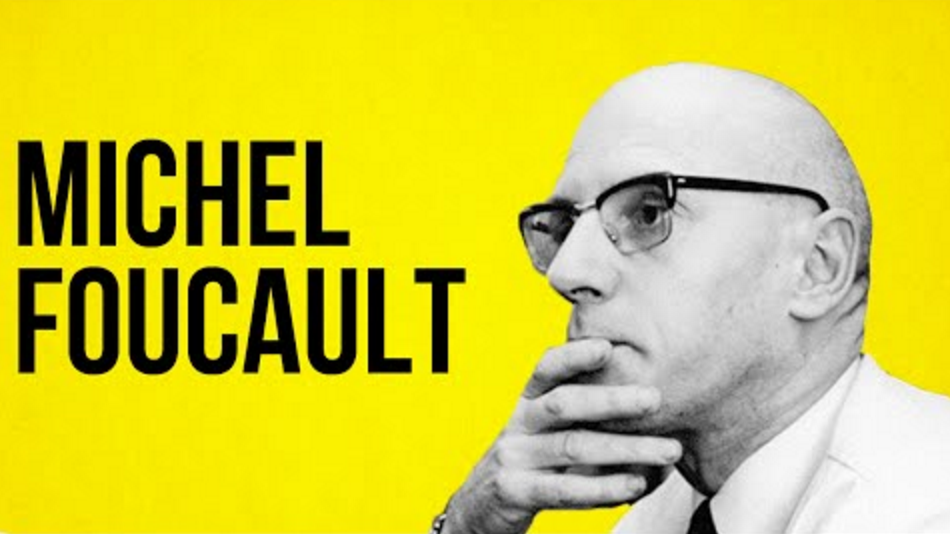
Hear Michel Foucault's Lecture "The Culture of the Self," Presented in English at UC Berkeley
Details Select delivery location Usually ships within 7 to 8 days Qty: 1 Add to Cart Buy Now Payment Secure transaction Ships from SuperBookDeals- Sold by SuperBookDeals- Returns Eligible for Return, Refund or Replacement within 30 days of receipt $3259 + $3.99 shipping Have one to sell? Sell on Amazon Other Sellers on Amazon Add to Cart $43.06
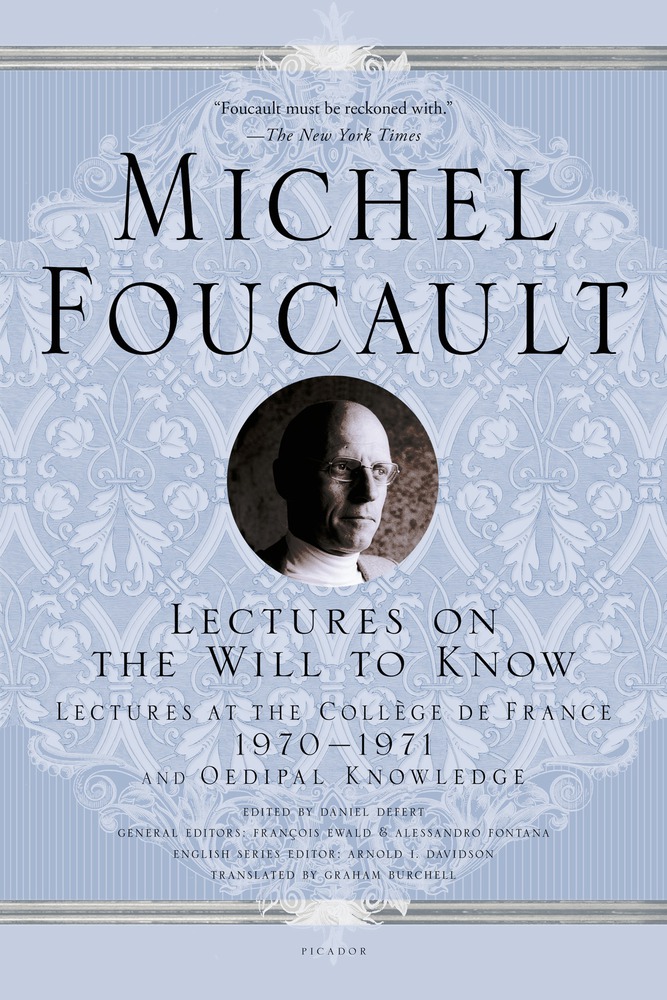
Lectures on the Will to Know Lectures at the Collège de France, 19701971, and Oedipal
Reading and Studying the Lectures on the Will to Know by Michel Foucault. This stream covered the end of lecture 10 and first half of lecture 11Live reading.

Reading/Studying Livestream Foucault Lectures on the Will to Know YouTube
Foucault begins his notions from these lectures on the very notion of truth and the 'Will to knowledge' and the challenge is on when Foucault asks the very question of the entire western philosophical and political tradition: Namely knowledge (at least scientific knowledge) and its close association with truth is entirely desirable and is politi.

Reading/Studying Livestream Foucault Lectures on the Will to Know YouTube
In this episode, I cover Weeks 13, 3, and 4, from the "Lectures on the Will to Know."If you want to support me, you can do that with these links:Patreon: htt.

Lectures on the Will to Know Book by Michel Foucault ShopiPersia
The first installment of a yearlong seminar series on Michel Foucault's 13 landmark lectures at the Collège de France held on September 14, 2015.

Michel Foucault’s ”Lectures on the Will to Know” (Part 2/4) Theory & Philosophy Lyssna här
Michel Foucault Editors: Daniel Defert, François Ewald, Alessandro Fontana Part of the book series: Michel Foucault, Lectures at the Collège de France (MFL) 9624 Accesses 87 Citations 6 Altmetric Sections Table of contents About this book Keywords Reviews About the author Bibliographic Information Publish with us Table of contents (16 chapters)
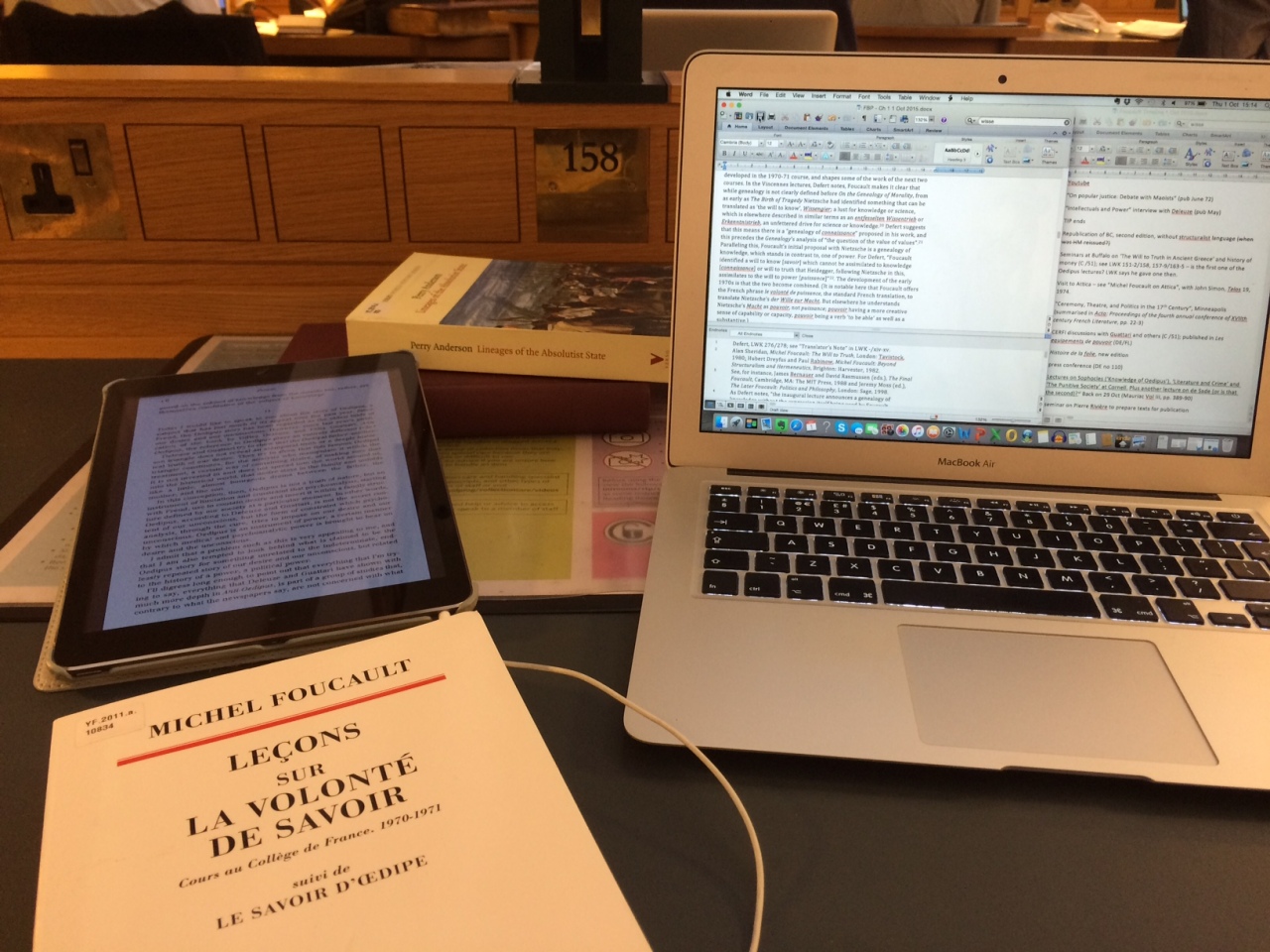
Foucault The Birth of Power Update 4 collaborative work and a complete draft of Chapter One
In this episode, I cover weeks 5, 6, 7, 8 of Michel Foucault's "Lectures on the Will to Know."If you want to support me, you can do that with these links:Pat.

(PDF) The Violence of Curiosity Butler's Foucault, Foucault's Herculine, and the WilltoKnow
need to go back to Foucault‟s very first lecture course at the Collège de France (Lectures on the Will to Know), in which he defines the fundamental orientation of his research for the years to come.4 In other words, I want to show that the first lecture course lays the 1 M. Foucault, Du gouvernement des vivants. Cours au Collège de France.

Hear Michel Foucault's Lecture "The Culture of the Self," Presented in English at UC Berkeley
Lectures on the Will to Know (Michel Foucault, Lectures at the Collège de France): Foucault, M., Davidson, A., Burchell, Graham: 9781403986566: Amazon.com: Books Books › Politics & Social Sciences › Philosophy Enjoy fast, FREE delivery, exclusive deals and award-winning movies & TV shows with Prime

Seminar with Daniel Defert "Reflections on Foucault’s Will to Know" YouTube
This volume gives us the transcription of the first of Michel Foucault's annual courses at the Collège de France. Its publication marks a milestone in Foucault's reception and it will no longer be possible to read him in the same way as before. In these lectures the reader will find the deep unity of Foucault's project from Discipline and Punish (1975), dominated by the themes of power and.

(PDF) The Genealogy of Genealogy Foucault’s 19701971 Course on The Will to Know Michael C
Lectures on the Will to Know: Lectures at the Collège de France, 1970-1971, and Oedipal Knowledge (Michel Foucault Lectures at the Collège de France, 1): Foucault, Michel, Defert, Daniel, Ewald, François, Fontana, Alessandro, Davidson, Arnold I., Burchell, Graham: 9781250050106: Amazon.com: Books Books › Politics & Social Sciences › Philosophy
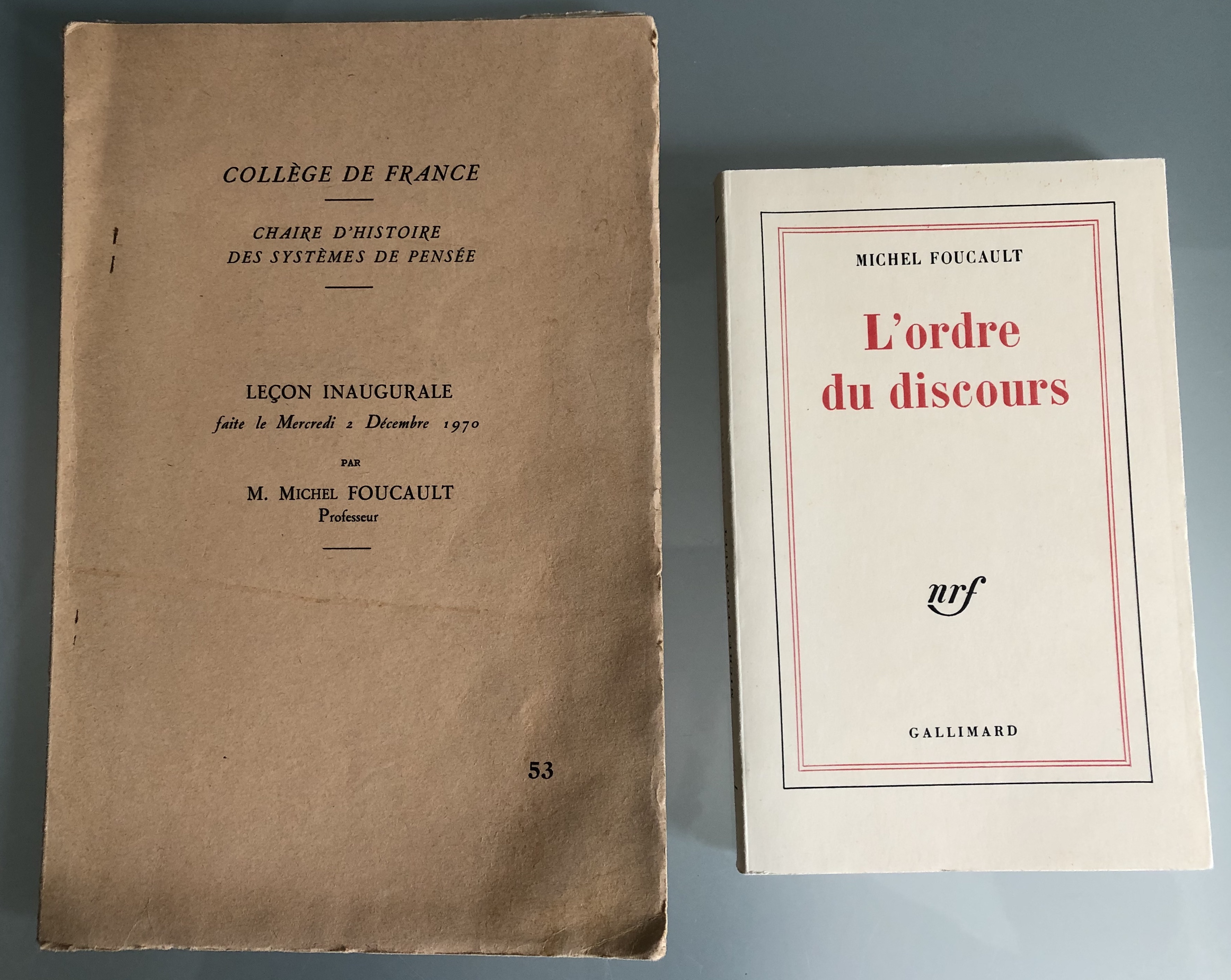
Foucault’s Inaugural lecture at the Collège de France, L’ordre du discours comparison of the
Foucault‟s genealogy of truth reveals the historical and contingent conditions of emergence of a morphology of thought which presents itself as natural, necessary, and disinterested. In doing so, however, Foucault also leaves open the question of whether a different morphology, and a different

What is Biopolitics? (See link below a video lecture on "Foucault's Theory of Power") YouTube
This essay argues that in order fully to appreciate the reorientation of Foucault‟s lecture courses from the 1980s around the concepts of "truth" and "subjectivity," it is necessary to read closely his very first lecture course at the College de France, Lectures on the Will to Know (1970-1971), in which, for the first time, Foucault focuses on the event of truth itself, rather than.
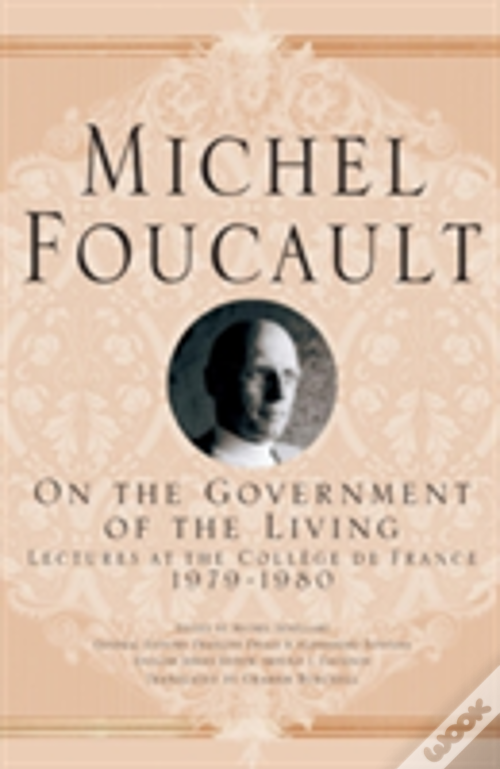
On The Government Of The Living de M. Foucault Livro WOOK
By Jesús R. Velasco Let me build on the fascinating introductory comments of Nancy Luxon and Jim Faubion to articulate some questions that may connect Foucault's theoretical interventions in the Lectures on the Will to Know with the contemporary issues in which he was involved. Not in the manner of analogy or figural allegory —the lectures are not a roman à clef—but as part of a larger.